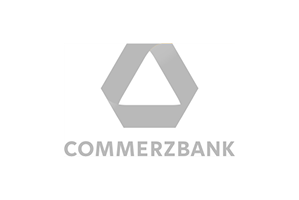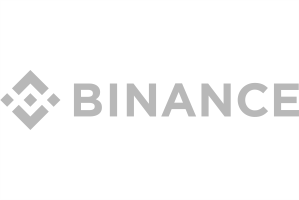Many investors are already looking to explore and expand their ventures, as cryptocurrencies are becoming increasingly widespread worldwide as a highly profitable and fast-growing sector. Italy is no exception, being an advocate of digital currencies and promoting the growth of its blockchain ecosystem. Together with a team that has extensive experience in this area of business and the procedure for obtaining an Italian crypto license. In addition, you will receive detailed information and support in overcoming all possible difficulties with crypto companies, providing guidance at every step.
The advantages of securing a crypto license in Italy include:
- Italy’s welcoming stance on cryptocurrencies and proactive support for crypto ventures.
- Ranked among the top 10 Eurozone countries with a low commercial sector failure rate.
- Company registration in Italy opens doors to expansive business development across the Eurozone.
- The process of company registration, relocation, and residence permit acquisition is swift and often completed within months.
- Italy’s strategic location in Europe also provides easy access to major markets and a diverse consumer base.
Italy’s Crypto Asset Regulation and Laws
The country has a significant interest in cryptocurrencies among Italian families, with 35% of them investing in digital currencies, reflecting a regulatory strategy towards crypto assets that combines caution with support for innovation. Italy requires entities involved in cryptocurrencies to register with the Organismo degli Agenti e dei Mediatori (OAM)/ Register of Financial Agents and Credit Mediators, for anti-money laundering (AML) purposes, in line with the broader EU AML directives. The regulation also requires crypto exchanges and wallet providers to comply with Know Your Customer (KYC) requirements and report suspicious transactions to the Financial Intelligence Unit (FIU). Additionally, Italy has established a framework for Initial Coin Offerings (ICOs) to provide guidelines and protect investors from fraudulent schemes.
AML Compliance
Following the EU’s 5th Anti-Money Laundering Directive (AML 5 Directive), implemented through Italy’s Legislative Decree No. 125 of 2019, crypto service providers must register with the OAM Register to ensure transparency and security.
European Alignment
Italy is strategically waiting for the EU’s Markets in Crypto-Assets (MiCA) regulation to take effect, promoting a harmonized approach to crypto regulation across the European Union.
Authority Warnings
The Bank of Italy and the Commissione Nazionale per le Società e la Borsa (CONSOB) have issued warnings about the risks of cryptocurrencies, highlighting the need for investor caution in an unregulated market.
Data Protection and Security
Under the EU General Data Protection Regulation (GDPR), crypto service providers are required to implement robust security measures to protect customer data and digital assets, reflecting Italy’s commitment to data protection. Furthermore, the Italian government has been actively working to combat money laundering and terrorist financing through increased oversight of cryptocurrency transactions. By adhering to these regulations, Italy aims to create a safer and more secure environment for both investors and service providers in the crypto market.
Legal Framework
Italy’s Criminal Code (under section 640-ter) includes provisions for cybercrimes involving digital assets, with penalties for unauthorized data access or system tampering, emphasizing the legal consequences of security breaches in the crypto space.
Clarification on Financial Instruments
The Italian Supreme Court and CONSOB have clarified the criteria for cryptocurrencies to be considered financial products, subject to financial regulations and requiring compliance with offering and prospectus requirements.
Italian Crypto License Varieties
The type of Italian cryptocurrency license required varies based on the specific nature of the crypto-related activities, including:
- Cryptocurrency exchange services.
- Conversion of cryptocurrencies to fiat currencies.
- Crypto brokerage services.
Management, issuance, and maintenance of crypto wallets and encryption keys for clients.
Activities that only include crypto-to-crypto trades require a regular crypto licence. Operations involving the exchange of cryptocurrencies for fiat money or other legal tender transactions, on the other hand, require a separate permit, highlighting the regulatory intricacies in Italy’s digital currency market.
Crypto Exchange License of Italy and the Philippines
The Organismo degli Agenti e dei Mediatori (OAM), which focuses on anti-money laundering (AML) measures, is responsible for the crypto exchange license in Italy. First of all, virtual service providers (VASPs) are required to register and comply with strict KYC protocols, as well as background checks on management and a ban on anonymous accounts. In addition, operations must comply with anti-money laundering and anti-terrorist financing laws.
In the case of the Philippines, a cryptocurrency business must have a Money Service Business (MSB) registration certificate, according to the Bangko Sentral ng Pilipinas (BSP). The requirements include risk management, IT security, and anti-money laundering, as well as financial obligations and requirements. In this way, the regime ensures consumer protection, data security, and operational integrity. In general, there are both common and unique features, so it would be best to take a closer look at the specifics of the Italian cryptocurrency exchange license.
Requirements for Securing an Italian Crypto License
The Italian Organismo degli Agenti e dei Mediatori (OAM) sets forth a detailed regulatory framework for entities operating within the cryptocurrency space, emphasizing Anti-Money Laundering (AML) compliance and operational integrity.
Registration and Compliance Requirements
Mandatory VASP Registration:
- All Virtual Asset Service Providers must register with a dedicated crypto business registry.
- This applies to both domestic entities and those from other EU countries providing digital asset services in Italy.
- EU-based VASPs need a permanent or stable organizational presence in Italy to register.
- Registration in the official registry or obtaining a cryptocurrency license in Italy confirms adherence to Italian AML laws and KYC procedures.
Integrity and Operational Transparency
There are no criminal records for VASP’s senior management, shareholders, or beneficial owners.
Prohibition of anonymous accounts with a minimum customer identification threshold set at 700 euros.
Regulatory Reporting Obligations
Quarterly Reports to OAM:
- Detailed customer identification data.
- Summaries of transactions per client, including the end-of-quarter euro value.
- Information on the total balance of legal and virtual currency per client.
- Number of currency conversion operations.
Operational Requirements for VASPs
- Sufficient capital to support business operations for 6–12 months.
- Strict adherence to Know Your Customer regulations.
- Detailed documentation outlining the crypto business’s prospects and potential benefits.
- Implementation of robust security measures and compliance with AML regulations.
Proof of Operational Readiness:
- Evidence of the origin of operational funds.
- Professional qualifications of owners and employees.
- Confirmation of the company’s physical office presence.
- Company formation agreement and state register of crypto companies extract.
- Opening of a corporate account for commercial purposes.
Steps to Secure an Italian Crypto License
To obtain a crypto licence in Italy, businesses must follow a detailed procedure that ensures regulatory compliance and operational readiness:
Business Incorporation
Register your company in Italy with sufficient authorized capital for crypto operations.
Operational Infrastructure
Set up a physical office, hire staff, and ensure there’s a dedicated AML compliance officer.
Banking Setup
Open a corporate bank account for financial transactions.
Documentation Assembly
Gather all required documents as per the Italian licensing authority’s checklist.
Financial Planning
Outline your operating budget and capital for the initial 6–12 months.
License Application
Submit your comprehensive Italy cryptolicense application.
Tax Obligations for Cryptocurrency Companies in Italy
Companies based in Italy must pay income tax on global earnings, encompassing domestic and international revenues. Non-resident businesses are taxed on profits derived from economic activities conducted within Italy, specifically from sources within the country.
The standard VAT rate applicable in Italy is 22%.
An annual mandatory tax based on the cadastral value of owned real estate, with rates ranging between 0.4% and 0.7%, varying by region.
The corporate income tax rate stands at 24.5%. This tax is levied on the company’s profits after deducting expenses and losses. Furthermore, companies must also adhere to the standard VAT rate of 22% on goods and services sold within Italy. It is important for businesses to comply with these tax obligations to avoid penalties and ensure legal compliance in Italy.
FAQ
What is a cryptocurrency exchange in Italy?
Platforms where users can trade cryptocurrencies and convert them into fiat currency, operating within the local regulatory framework. A valid cryptocurrency license in Italy from the relevant authorities is a prerequisite for legal operation.
Is there a regulatory framework for cryptocurrencies in Italy?
The OAM is a financial authority responsible for ensuring compliance with the rules for the cryptocurrency sector as well as overseeing businesses that work with digital assets. Obtaining a crypto license in Italy and complying with European standards aimed at preventing financial crimes from operating successfully.
Which Italian banks are open for cryptocurrency transactions?
Italy does not restrict cryptocurrency trading, highlighting Banca Sella, Intesa Sanpaolo, and Fidor Bank as virtual asset-friendly services.
How does Italy implement blockchain technology?
The legislation allows the exchange of digital currencies for goods, services, and fiat money, as well as for various transactions and savings. With an Italian cryptocurrency exchange license, holders become authorized to do this activity.








